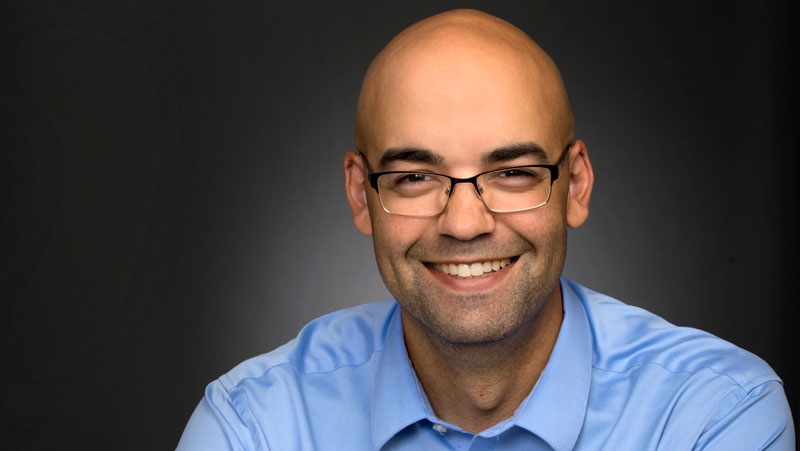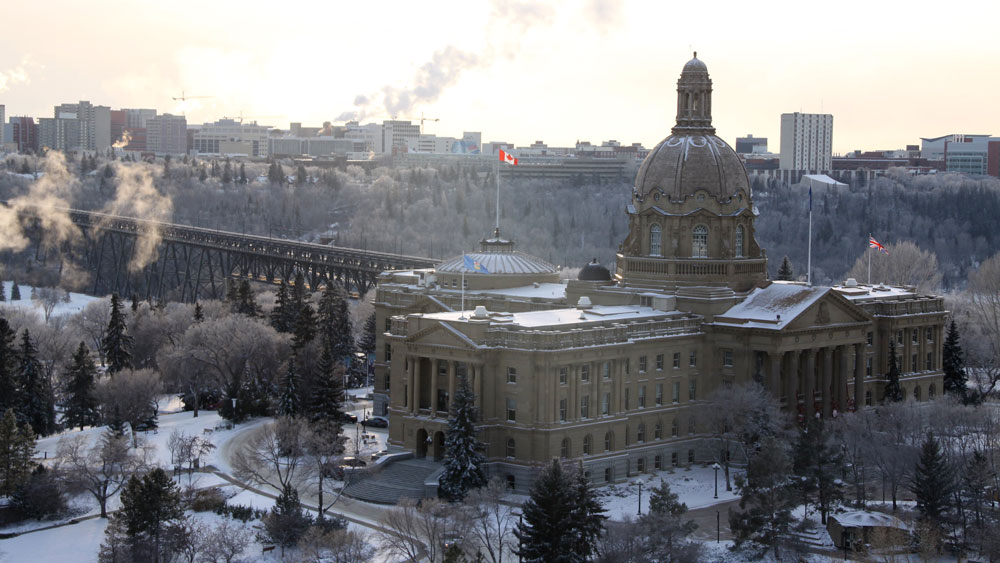Alberta Policy Internship Program Launched
Donna McKinnon - 28 November 2019

Associate Professor Jared Wesley, who serves as the Director of Master’s Programs in Political Science, will oversee the APIP
Announced today, the University of Alberta, the University of Calgary and the Government of Alberta have established the Alberta Policy Internship Program (APIP) to facilitate graduate training for policy professionals. Developed over the last year, the internship program is the pillar of the new Masters of Arts in Policy Studies in the Department of Political Science at the University of Alberta, set to launch in 2020.
In its initial phase, the APIP will place five students from each university in policy development roles for up to six months, affording them crucial hands-on paid experience in the workplace. (That number will bump up to ten internships per university in 2021.) According to Associate Professor Jared Wesley, who serves as the Director of Master’s Programs in Political Science, this type of experiential learning in policy development was previously only available to students who travelled outside of the province to places like Ottawa and Washington.
"Now we’ve plugged that hole and we are able to retain and recruit top talent to come and train right here in Alberta," he says. "It stems the brain drain and allows us to keep the best and brightest and put them on a path to a long-term public service career."
At the same time, he adds, it provides the Government of Alberta with regular and reliable access to qualified policy professionals who are prepared to contribute to policy development and implementation on ‘day one’.
"We've been building bridges between the Department of Political Science and the Government of Alberta for the past several years," he says. "This is just the latest development in a long-term relationship where both sides see the benefit of working together to solve tomorrow's policy challenges."

The University of Alberta, the University of Calgary and the Government of Alberta have established the Alberta Policy Internship Program (APIP) to facilitate graduate training for policy professionals (Photo: Dave Cournoyer, the Commons)
Wesley explains that the University of Alberta’s collaboration with the Government of Alberta and the University of Calgary takes advantage of the "economies of scale" as well as each institution's unique policy studies programs.
"We have well-known strengths in social and environmental policy, as well as the intersection of politics and policy, but each program provides a well-rounded education," he says. "If we can offer our students an opportunity to learn from each other through things like an internship or other professional development, it’s a win-win for everybody."
While the majority of students interested in pursuing an MA in policy studies come from political science, it isn’t exclusive. Students from economics and sociology have also shown interest, and as Wesley notes, interest has been expressed by Art & Design students who plan to use their skills in systemic design to solve policy problems. In general, students who are drawn to this field are keen to make an impact in the world.
"They want to get their hands dirty and actually work in the community," he says. "Not just the Government of Alberta – although they are the biggest policy employer around – but also the nonprofit sector, Indigenous organizations, and with private sector companies that work in government relations and policy development. Students are really looking to make their mark and make the world a better place, and we need to give them the experiences and the tools to do that."
"The internships will vary depending on the cohort of students and their individual interests and strengths," says Wesley, adding that they "will work with the Government of Alberta to identify positions."
Internships are expected to be underway by the spring of 2020, before the actual launch of the MA in Policy Studies. By 2021, however, graduate students will have completed mandatory courses in Power, Politics, and Policymaking in Canada and Indigenous Governance prior to beginning their internship. Upon completion, students will wrap up their 20-month degree program with a capstone project in conjunction with their policy employer.
While the APIP is just one of several internship programs within the department, it is the largest. Ultimately, says Wesley, the goal is to have two prospective internship placements for every student admitted to the program. Surplus placements will be made available to graduate students in Political Science and other disciplines.
"We started off with a common goal, which was to make sure that another generation of top Alberta students weren’t lost to other jurisdictions," he says. "That was the common vision that we had with the Government of Alberta and the University of Calgary – and then we built a program around that. It's good to know that we have the commitment of the government to train tomorrow's leaders in public service."